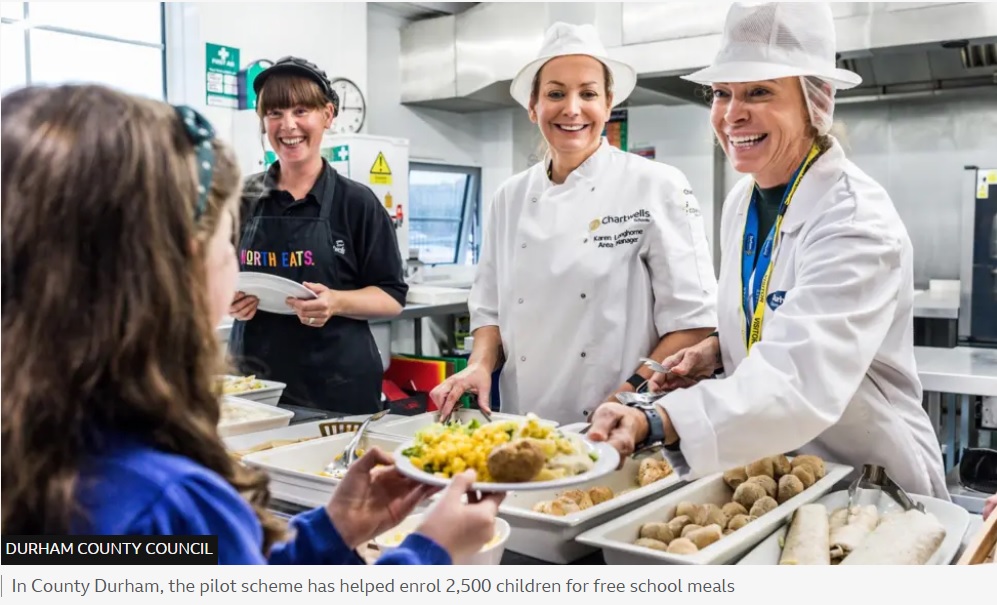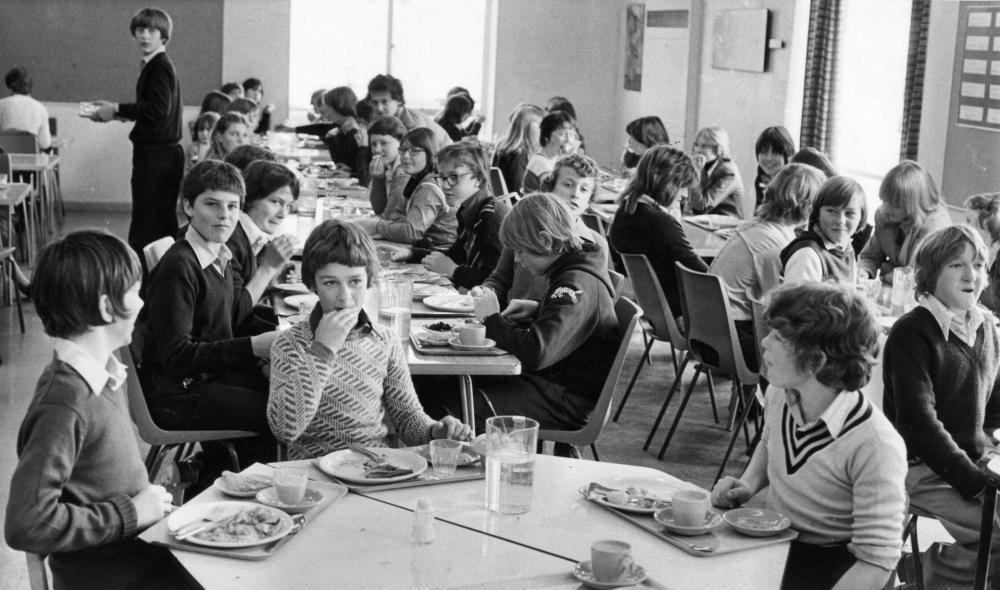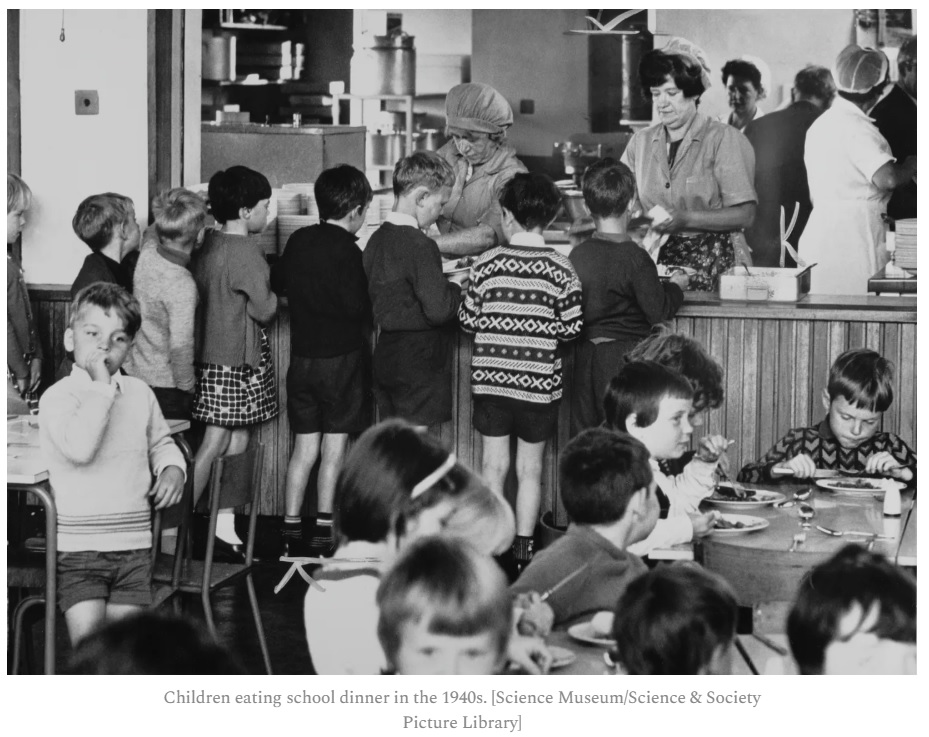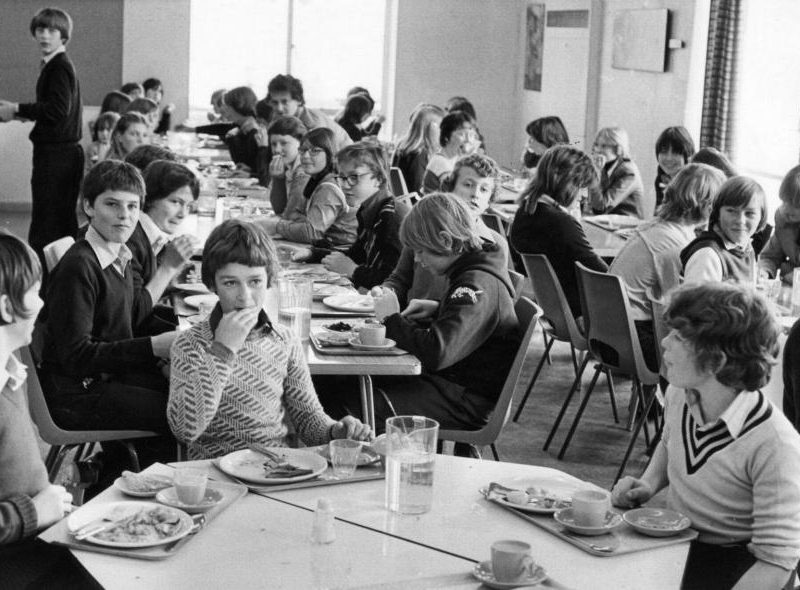By Harry Mottram: Parents, teachers, school governors and political groups in Bath will have welcomed the news that Education Secretary, Bridget Phillipson has announced families on Universal Credit will be eligible for free school meals – but they’ll have to wait until September next year. In Bath Labour opposition leader Robin Moss said: “I’m really pleased to see this positive initiative from the Labour Government, confirming that more families will qualify for free school meals. But here in Bath and North East Somerset, we’re not stopping there — we’ll keep working to make sure every eligible child actually receives them. When I spoke with Bridget Phillipson, we were clear that this is an important example of Labour locally working with Labour nationally to deliver real support for families who need it most.”
The Labour Group’s successful call for a change in the Council’s policy for free school meals for those on Universal Credit was unanimously approved at a full council meeting last November at the Guildhall. There does seem to be a political consensus on the issue. Well almost. In a post on social media this week the Green Party wrote: “Labour’s extension of free school meals doesn’t go far enough. The Green Party would introduce universal free school meals and lift thousands of children out of poverty by scrapping the two-child benefit cap.”

The Liberal Democrat MP for the city Wera Hobhouse signed a cross-party letter back in 2023 calling for free school meals for all primary school children as at the time they were only available to pupils in Wales, Scotland and London although in most areas, Reception, and Years 1 and 2 also got free school dinners.
There was not universal agreement however as the Conservative party has claimed the policy would mean less money for schools’ budgets which some may feel is fair comment. Schools they argue receive pupil premium funding for children on free school meals. However, they will not receive that funding for the additional children who receive the meals as a result of the expansion in September 2026 which leaves a financial gap. The BBC reported that Neil O’Brien, shadow education minister, called it a “very nasty sting in the tail for school funding” and said the government had “provided no justification at all for this stealth cut”.

Nationally it is estimated around 100,000 children will get free school dinners while in Bath and North East Somerset the Labour group believe around 6,000 children will benefit from the change in September 2026. The group said: “Today, a family’s total household income must be less than £7,400 a year (£617 a month) before benefits to qualify for free school meals. Following today’s national announcement from government, B&NES Labour councillors will continue their successful campaign to ensure all eligible B&NES families are “auto-enrolled” for free school meals.”
Those of us of a certain age will recall our own school days when you took in your dinner money in cash to give to the teacher. And those of us who are even more ancient will recall when all primary school children had a free bottle of milk at break time – something that was ended for most children in 1971 by Margaret Thatcher, the Secretary of State for Education and Science. That left only children in Reception with free milk. Secondary schools had already stopped free milk in the late 1960s in most cases.

School dinners have a long history with children taking in packed lunches from the earliest days of formal education although it wasn’t until 1906 that the Liberal Government of Henry Campbell-Bannerman which gave the green light to rate-payer-funded lunches or breakfasts for the poorest children on the discretion of the local authority with the Education (Provision of Meals) Act. Compulsory primary school education had been introduced which resulted in a spotlight highlighting schools and children as a political issue and with an increased franchise it became a vote winner in politics. By 1912, 358,306 elementary schoolchildren were provided with free meals although these children were still a minority in the numbers attending school.
In those early days breakfast was often the meal provided with mutton or vegetable broth on the menu or milk and porridge as an alternative. Further legislation followed to force more education authorities to provide nourishment and by the 1920s and 1930s the number of school dinners provided rose sharply as universal secondary education increased. Wartime in the 1940s saw the state taking a more proactive role with the 1944 Education Act requiring all Local Education Authorities to provide school dinners although with the increased cost by 1947 they could charge 6d (two and a half pence in today’s money) a meal although poor children were exempt. By the 1970s and 1980s attitudes in Government had changed and the age of universal free or low cost food and milk in schools was eaten away. Now, a generation or two later those decisions have begun to be reviewed as their negative effects have become known.
The Baby Boomer generation – those born after the war – will recall school meals with either affection or horror. Rice pudding, tapioca and semolina seemed to be fixtures on many menus as were over-cooked vegetables along with spam and corned beef. Others will happily remember sausage and chips as well as apple tart and custard being regular staples – and for many children the prospects of ‘seconds’ were greedily gobbled up – especially if there was an excess of food due to outbreaks of colds or flu reducing pupil numbers that day.

Personal choice and the consumer society changed attitudes in the 1990s and 2000s which was fine for some but increasingly had a negative effect on those who fell through gaps in the welfare net. An increase in child poverty, poor diets, obesity, a reliance on so-called junk food and processed foods – despite high profile campaigns by the likes of Jamie Oliver – revealed all was not good with the health of the nation’s youngest citizens.
And so in some ways we have come full circle with the state once again taking an interest in school children and their diets. Research (and common sense) shows that children who have a full breakfast and a healthy lunch concentrate better in class and achieve more in school. And school dinners have changed as society has changed. Gone is the 1906 bowl of porridge and in has come five a day fruit and veg and a balanced diet featuring vegan and vegetarian options in many cases. Good quality food leads to better educational outcomes – an investment in the future of the country – which is why the news of increased free school dinners has been almost universally welcomed – even if the start date is September 2026.

Bath Voice and Local Democracy Reporters
The journalists are funded by the BBC as part of its latest Charter commitment, but are employed by regional news organisations. A total of 165 reporters are allocated to news organisations in England, Scotland, Wales and Northern Ireland including Bath Voice. These organisations range from television and radio stations to online media companies and established regional newspaper groups. Local Democracy Reporters cover top-tier local authorities, second-tier local authorities and other public service organisations.
Bath Voice Monthly Newspaper is distributed free to thousands of homes and some supermarkets – distributed from the first of the month. Harry Mottram is the News Editor
Email him at news@bathvoice.co.uk Bath website: https://bathvoice.co.uk/news/
Bath Facebook: https://tinyurl.com/bdtf2kep Also on Twitter: https://twitter.com/bath_voice And Bluesky @bathvoicenews.bsky.social And also on Instagram https://www.instagram.com/harrymottram6/
Read the newspaper online at :https://issuu.com/bathvoice
To advertise to thousands of Bathonians call Shaun on 07540 383870 or email him on sales@bathvoice.co.uk


